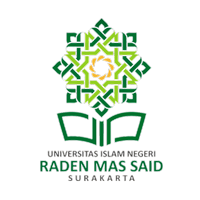Adami, L., & Schiavon, M. (2021). From circular economy to circular ecology: A review on the solution of environmental problems through circular waste management approaches. Sustainability, 13(2), 925. https://doi.org/10.3390/su13020925
Adianto, A., & Prayuda, R. (2018). Collaborative governance dalam kebijakan lingkungan (studi kasus pemanfaatan limbah kelapa sawit di Kabupaten Rokan Hulu). Jurnal Good Governance, 14(2). https://doi.org/10.32834/jgg.v14i2.18
Aidhi, A. A., Harahap, M. A. K., Rukmana, A. Y., Palembang, S. P., & Bakri, A. A. (2023). Peningkatan daya saing ekonomi melalui peranan inovasi. Jurnal Multidisiplin West Science, 2(02), 118–134. https://doi.org/10.58812/jmws.v2i02.229
Buijs, A. E., De Koning, S., Mattijssen, T. J. M., Smeding, I. W., Smits, M.-J., & Steins, N. A. (2024). Civil society for sustainable change: Strategies of NGOs and active citizens to contribute to sustainability transitions. Journal of Environmental Planning and Management, 67(12), 2863–2884. https://doi.org/10.1080/09640568.2023.2205571
Burton, I. (1987). Report on reports: Our common future: The World Commission on Environment and Development. Environment: Science and Policy for Sustainable Development, 29(5), 25–29. https://doi.org/10.1080/00139157.1987.992889
Georgeson, L., Maslin, M., & Poessinouw, M. (2017a). The global green economy: A review of concepts, definitions, measurement methodologies and their interactions. Geo: Geography and Environment, 4(1), e00036. https://doi.org/10.1002/geo2.36
Georgeson, L., Maslin, M., & Poessinouw, M. (2017b). The global green economy: A review of concepts, definitions, measurement methodologies and their interactions. Geo: Geography and Environment, 4(1), e00036. https://doi.org/10.1002/geo2.36
Groom, B., & Turk, Z. (2021). Reflections on the Dasgupta Review on the economics of biodiversity. Environmental and Resource Economics, 79(1), 1–23. https://doi.org/10.1007/s10640-021-00560-2
Halawa, D. N. (2024). Peran teknologi pertanian cerdas (smart farming) untuk generasi pertanian Indonesia. Jurnal Kridatama Sains dan Teknologi, 6(02), 502–512. https://doi.org/10.53863/kst.v6i02.1226
Indrayani, H. (2012). Penerapan teknologi informasi dalam peningkatan efektivitas, efisiensi dan produktivitas perusahaan. Jurnal EL-Riyasah, 3(1), 48. https://doi.org/10.24014/jel.v3i1.664
Klooster, D. J. (2002). Toward adaptive community forest management: Integrating local forest knowledge with scientific forestry. Economic Geography, 78(1), 43–70. https://doi.org/10.1111/j.1944-8287.2002.tb00175.x
Kusmiati, A., Ibanah, I., Widjayanthi, L., Kurnianto, A. S., Wulanjari, D., Prastowo, S., & Wijayanto, Y. (2023). Pendampingan petani untuk mendorong perubahan menuju praktek pertanian berkelanjutan. Integritas: Jurnal Pengabdian, 7(2), 501. https://doi.org/10.36841/integritas.v7i2.3629
Mairiza, K. T., & Noviarita, H. (2023). Meningkatkan kemampuan green economy dalam mendorong pengembangan desa wisata untuk mewujudkan pembangunan yang berkelanjutan. Revenue: Jurnal Ekonomi Pembangunan Dan Ekonomi Islam, 6(02), 40–53. https://doi.org/10.56998/jr.v6i02.98
Margaretha, V. (2024). Mengurai dampak kebijakan Tapera terhadap masyarakat Indonesia: Sebuah kajian hukum dan sosial. Milthree Law Journal, 1(1), 93–118. https://doi.org/10.70565/mlj.v1i1.3
Nanda Hidayati, Esti Handayani, & Sulistyowati, N. W. (2023). Inovasi berkelanjutan: Pendekatan kolaboratif untuk mengatasi tantangan sosial-ekonomi di Provinsi Jawa Barat. Jurnal Pengabdian West Science, 2(6), 460–467. https://doi.org/10.58812/jpws.v2i6.451
Purba, A., & Saragih, A. (2023). Peran teknologi dalam transformasi pendidikan bahasa Indonesia di era digital. All Fields of Science Journal Liaison Academia and Society, 3(3), 43–52. https://doi.org/10.58939/afosj-las.v3i3.619
Rovy Rosidah, Latifaturrahmah, Nova Wahyuni, & Yayat. (2024). Strategi pengembangan objek wisata dan pengelolaan wisata berkelanjutan terhadap perekonomian masyarakat Garut. Indonesian Journal of Tourism Business and Entrepreneurship, 1(1), 15–24. https://doi.org/10.31002/ijtbe.v1i1.1463
Styawati, I. H., Risdhianto, A., Duarte, E. P., Almubaroq, H. Z., & Falefi, R. (2023). Manajemen green industry dan implikasinya terhadap keamanan lingkungan. JAMI: Jurnal Ahli Muda Indonesia, 4(2), 169–180. https://doi.org/10.46510/jami.v4i2.160

